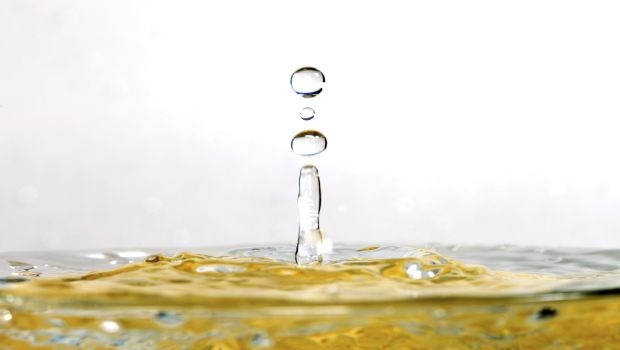Read about the risks of using unclean water in industrial manufacturing and natural product processing—as well as ways companies can ensure they are using the cleanest water possible.

Most health-conscious people with access to clean water wouldn’t dip a cup into the local waterway and take a drink. Why? We are taught to take the risk of consuming unclean water seriously—and rightfully so. Similarly, a manufacturer of natural products should take extreme caution when using water in regular production and processing. In many industries, from natural products and food processing to parts manufacturing, water touches nearly every stage of production. It’s used as a lubricant and a coolant. It washes and moves, and oftentimes, it is continually recycled.
The ability to clean water (and keep it clean when recycled) is crucial to preventing damage to manufacturing equipment and the end product.
Water Use in Manufacturing Processes
Water is the lifeblood of manufacturing. Nearly every manufactured product touched by consumers, including natural products, comes in contact with water during production (and not only during cleaning, diluting, processing, etc.). Water is also heavily used within the products themselves as part of the makeup or chemical chains to create a new product—such as paper pharmaceuticals, consumable products, various chemicals, refined petroleum, metals and more. In fact, the U.S. Geological Survey estimates more than 18 million gallons of water are withdrawn daily for industrial use alone. That doesn’t reflect the full picture, however, because so much water in manufacturing is cleaned and reused.
The Risks of Using Contaminated Water for Your Equipment
One might never guess what’s lurking in even the clearest water flowing through a manufacturing facility. Unsuspecting pure water drawn from natural sources or municipal tap is packed with contaminants. And each tiny particulate, whether it is solid matter or liquid chemical, carries its own risk to your equipment. Over time, minimal amounts of particles can build and slowly corrode industrial equipment. Contaminants can cause malfunctions, or act as mini sandblasters that continually dig until equipment is compromised. In natural product manufacturing, the buildup could result in batch spoilage and large-scale contamination. Not surprisingly, the damage is at best expensive to repair and at worse irreversible. What’s more, product integrity can become jeopardized as a result of manufacturing with unclean water. Salt, chemicals and other contaminants can ruin a production run and put serious financial strain on a business, one project at a time.
Unclean Water, the Risk to Natural Products and the Food Supply Chain
Food processing and manufacturing of natural products is one of the most closely monitored industries in the country, and for good reason. By many measures, the risk of water contamination in the manufacturing of consumable goods is even greater than in standard manufacturing. After all, the end product in food processing is often physically ingested. In addition to inorganic compounds that can wreak havoc on industrial equipment, water is literally swimming with life forms and potentially harmful waterborne pathogens. Left unchecked, organic matter can pose a significant public safety risk, not to mention the risk to the company that allowed the contamination to occur. In addition to the water that makes its way into food and natural products, water is used to clean and sterilize processing equipment. To effectively do so, the water must be as pure as possible so as not to exacerbate any existing threat of equipment contamination.
How to Ensure the Use of Clean Water
What steps should companies be taking to ensure manufactured natural products are safe and contamination free? Here are a few precautions every natural product manufacturer should take:
1. Understand the process. Be familiar with each step of the manufacturing or food processing cycle, and know when water enters the picture.
2. Know the source. Is it municipal water? Well water? Repurposed water from within the facility? This matters, as each source of water carries its own risks and could change the approach to filtration — think water softeners, debris removers, etc.
3. Use a quality filtration system. A high-performance filtration system is certainly an investment, and one that shouldn’t be taken lightly. The efficiency of a filtration system can make a significant difference in machine longevity and the quality of products.
4. Perform regular maintenance. Filtration system maintenance means more than regularly changing the filter bag; a filtration system should be cleaned and inspected regularly.
5. Test and retest the water itself. Don’t blindly trust a filtration system. Test the water that makes its way to equipment or into products. Check for particles or chemical contamination that could indicate a faulty filtration system, or a bigger problem related to the water source.
Amber Carpenter is the product specialist at Commercial Industrial Supply, a leading online supplier of industrial filtration products for food manufacturing facilities. Carpenter has a strong understanding of how to solve customer problems and find the appropriate product to fit the customer’s needs.
About the Author(s)
You May Also Like




.png?width=800&auto=webp&quality=80&disable=upscale)